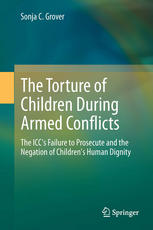

Most ebook files are in PDF format, so you can easily read them using various software such as Foxit Reader or directly on the Google Chrome browser.
Some ebook files are released by publishers in other formats such as .awz, .mobi, .epub, .fb2, etc. You may need to install specific software to read these formats on mobile/PC, such as Calibre.
Please read the tutorial at this link: https://ebookbell.com/faq
We offer FREE conversion to the popular formats you request; however, this may take some time. Therefore, right after payment, please email us, and we will try to provide the service as quickly as possible.
For some exceptional file formats or broken links (if any), please refrain from opening any disputes. Instead, email us first, and we will try to assist within a maximum of 6 hours.
EbookBell Team

5.0
38 reviewsThis book examines selected legal complexities of the notion of torture and the issue of the proper foundation for legally characterizing certain acts as torture, especially when children are the targeted victims of torture. ICC case law is used to highlight the International Criminal Court’s reluctance in practice to prosecute as a separable offence the crime of torture as set out in one or more of the relevant provisions of the Rome Statute where children are the particularized targets as part of a common plan during armed conflict. Also addressed is the failure of the ICC to consider that the young age of the victims of torture (i.e. children) should be an aggravating factor taken into account in determining the ICC sentence for those convicted of the torture of civilians, including children, in the context of armed conflict as part of a common plan. The six UN-designated grave crimes against children (including child soldiering for State or non-State forces perpetrating mass atrocities, and sexual violence perpetrated on a systematic and widespread basis against children including child soldiers), it is argued, are also instances of the torture of children as part of a common plan such that separate charges of torture are legally supportable (along with the other charges relating to additional Rome Statute offences involved in such circumstances). Useful legal perspectives on the issue of the torture of children in its various manifestations gleaned from the case law of other international judicial forums such as the Inter-American Court of Human Rights and the ICTY are also examined.